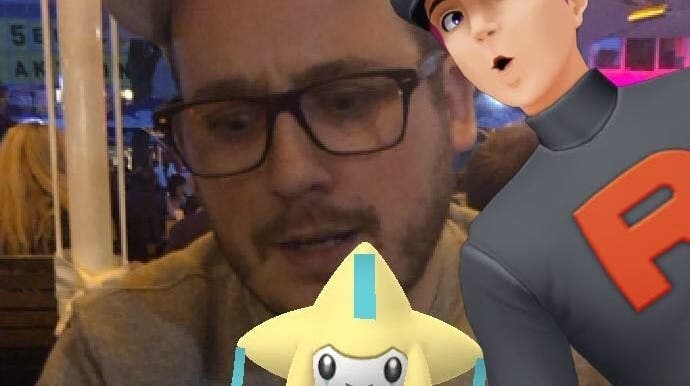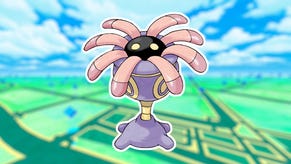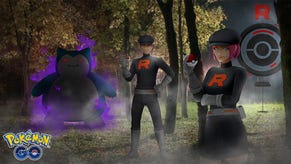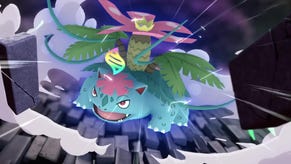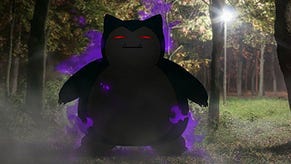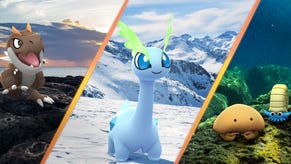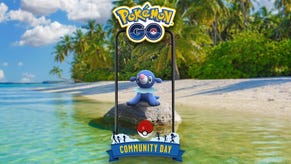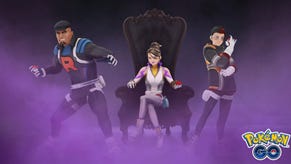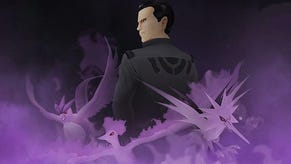Three years on, Pokémon Go's events prove it's still one of the most social games in the world
Shiny happy people.
For Pokémon Go fans, Dortmund last week felt like a digital Disneyland. Or a really polite, sober music festival. No, I'll stick with Disney - because I think there's something similar in the way its magic kingdom, all plasterboard facades and cast members in costumes, becomes something more special when you're there in person, and experiencing it all alongside others.
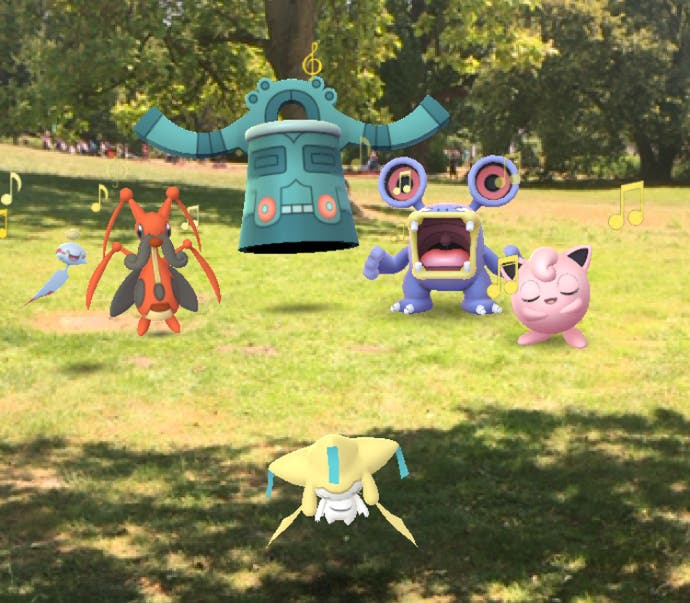
At its base level, Pokémon Go is a phone app about tapping on virtual creatures, and even if you went to its Go Fest events alone, you'd have an astonishingly rewarding time if you simply wanted to cram your virtual suitcase full. But seeing the mums and dads exploring Dortmund's Go Fest park with their kids, hearing them celebrate their Pokémon catches, or joining the groups of 30-somethings who met playing the game as they wove along the city's cobbled streets together, playing long into the night - there's something special here, too. Go Fests are an opportunity to travel and play this game with people you know, cross paths with others who share a common hobby, and feel part of a welcoming wider community. It's about seeing an entire city get taken over by those passionate about this game, and getting to connect with a few of them along the way.
On my last night there I walked a very old friend back to his hotel around 1am. He's not old himself, I should say, in fact we're exactly the same age. But we are the oldest of friends because technically we started hanging out before either of us were born. Our mums met at a baby clinic, and then after he and I actually became people, we - his name's James - properly met aged about two weeks. We've been friends ever since. That night, we'd met in the city centre, got dinner, caught up. We'd talk about our lives for a bit, and then we'd be back to Pokémon. I'd already had my day in the Go Fest park, so had passed on advice for where to go to hunt for the best things, ready for his turn in the morning.

Within less than a minute of arriving in the city, I told him, I'd found myself among fifty or so players gathering outside the main station. There was a raid on at the gym there, and lobby upon lobby was full. Someone asked where I'd just gotten in from - they told me they ran a Pokémon Go YouTube channel and had just landed from Japan. When the raid finished, I got a rare Shiny Pokémon - which was all filmed, so I am delighted to know my reaction is now part of a video somewhere. That evening, the city was alive with fans walking around in couples and groups, and I found myself running into various people I knew who played, some of whom I first met in Dortmund last year.
Having played Pokémon Go as part of a local community for some time, I know there's no pigeonholing the game's audience (some of the most regular players in my town are a teacher, a lawyer, a scaffolder, an aeroplane mechanic, a pub landlord and, er, me). It's the same at Go Fest, too. Groups of friends in their 30s and 40s, silver-haired couples, rawkus teens, young families. If you were, say, 15 when you first caught a Pidgey in Pokémon Red, you could be 35 with a son or daughter old enough to play Pokémon Go today. But the game also appeals to people who've never touched a Pokémon game before, hooked in by the groups and gatherings PoGo fosters as part of its regular gameplay, and its various social features.
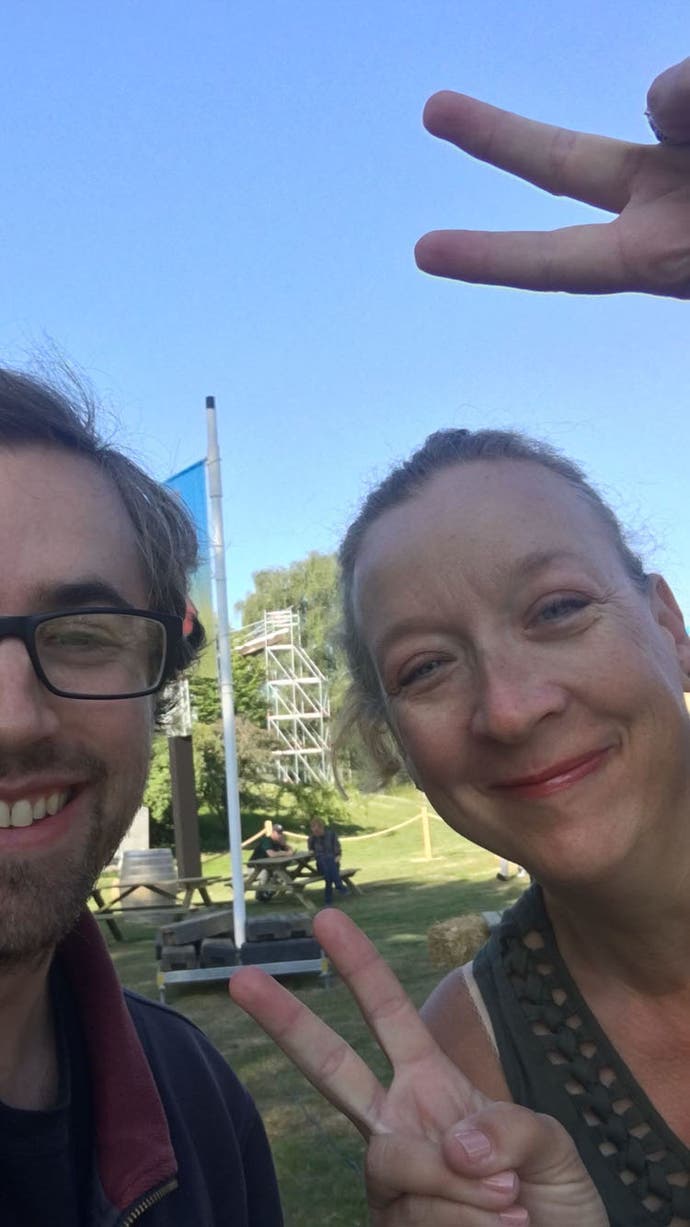
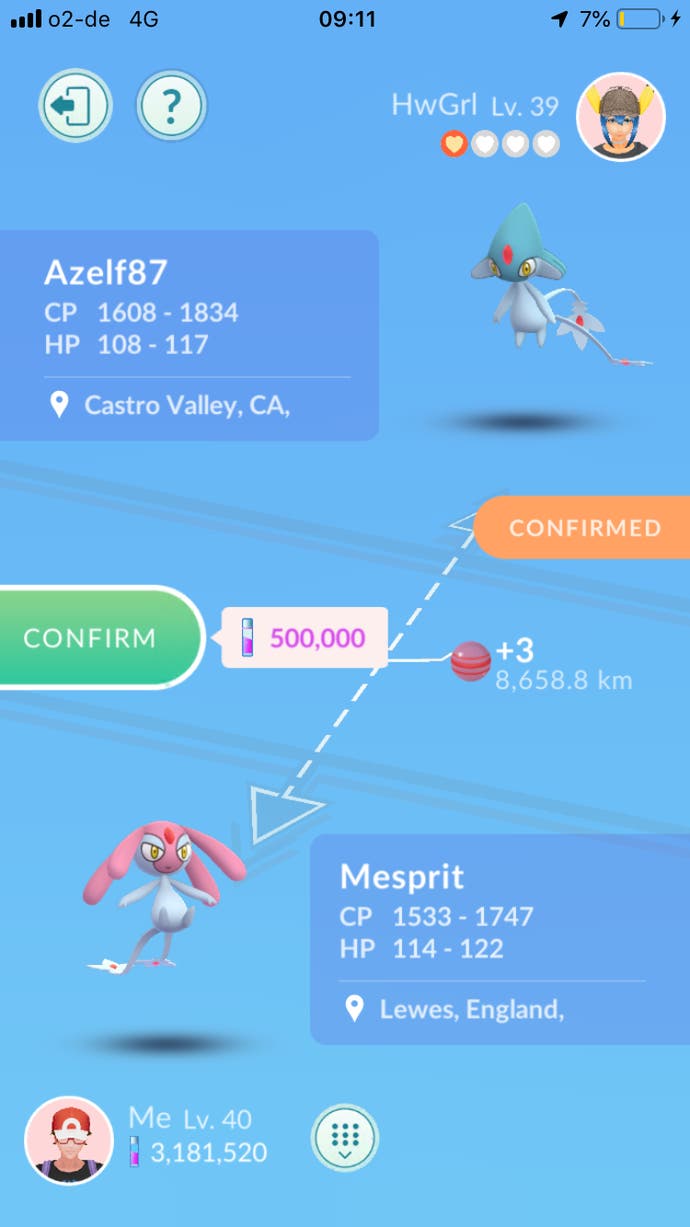
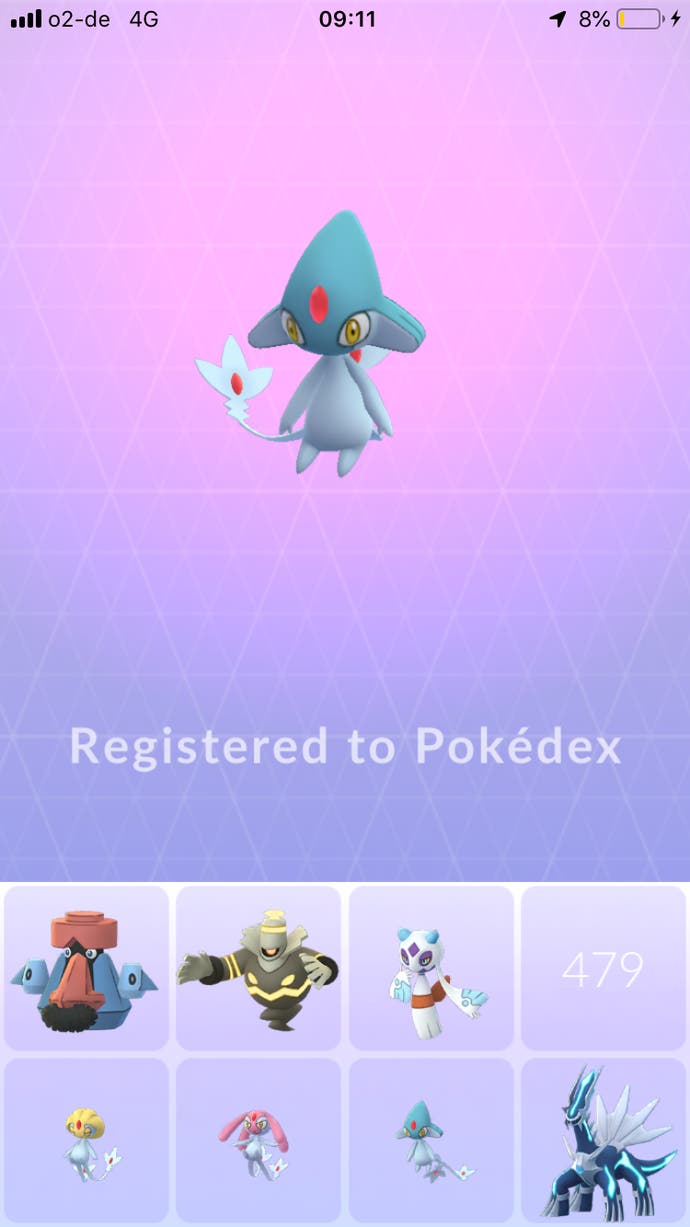
Helen is from San Francisco, California - that's us just above. I met her this year in the Go Fest park's Trading Post area. Go Fest ticket holders only get one day in the park itself to catch things there, and I wanted to set aside time to hunt for an Azelf - a Legendary creature so-far released only in the US - which I'd need to trade for. Helen's actually from just south of San Fran, she told me, from a little place I'd never heard of, and had travelled with a girlfriend (another Pokémon fan) after they'd spent a week together on holiday in Turkey. Helen really loves Pokémon Go, often drives to the best local spots to play, and says it gives her something to do in the afternoons.
The Trading Post was one of several new areas this year. There was also a battle zone (sadly, like the in-game feature, a bit too tucked away for its own good) and various merch stands (a top request from last year, I was told by Niantic). But it was to the trading area, where benches and seats were set out to facilitate in-game deals, I headed first, keen to snag an Azelf before everyone had done their trades for the day. Trading rules and in-game costs were relaxed a little inside the event perimeter (Pokémon Go puts a limit on trades for new creatures to stop you sitting there and completing your entire Pokédex in one go), though Legendary trades remained pretty expensive. This was still serious business.
Go Fest's park was full of fans from dozens of countries - mostly European, but a significant number also from America, Canada and Japan - and the Trading Zone seemed like the first port of call for many from outside the country. You could fill out cards that listed what you had and what you needed, and it was interesting seeing some of the different names for Pokémon in different languages. The wonderfully named Icognito ('iconography' and 'incognito' for its hard to find nature), better known outside Germany as Unown, featured heavily, along with the various other creatures only available in specific regions.
But I was only after Azelf, so I chose to just listen out for an American accent - which led me to Helen, who had an Azelf, and needed the European equivalent, Mespirit. The deal was agreed, and we added each other as in-game friends. Around two per cent of trades have the potential to turn "Lucky", which significantly boosts both traded Pokémon's stats and makes them easier to power up further. I suspect this rate was boosted further in the park - or maybe we were just lucky - as our Azelf and Mespirit were indeed gilded as such when traded. Helen and I instinctively high-fived.

I'm trying to explain what Go Fest actually feels like - and of course, I acknowledge, plenty of other game conventions and community meetups provide places for fan interaction. If I was into EVE I could go drinking in Reykjavik with its players at Fanfest, or if I was into WOW then I'd find my tribe in Anaheim at BlizzCon. But Pokémon Go events not only involve the game's community - they enable them to play the game together and be significantly rewarded for it. Most WOW fans aren't lugging their PC rig across the country simply to bash some murlocs there. And Pokémon Go has always been at its best when played with others as part of its wider community.
Pokémon Go's now-annual summer events have become the biggest fan events for anything to do with the franchise, and this second year in Dortmund felt far more established than the first. Bemused bar staff and local residents now had a better idea of what was going on, certainly, when fans gathered for raids or filled every restaurant table in the main square with their phones open. I had noticed several shops and pop-up stalls trying to get in on the Pokémon action, too. This year was the first time Europe had gotten a Go Fest, the more structured style of event previously only found in Chicago, which meant attendees got the same early access to the Mythical creature Jirachi (a wish-granting Pokémon who requires waking up via a series of elaborate tasks), and various themed biomes to go explore.
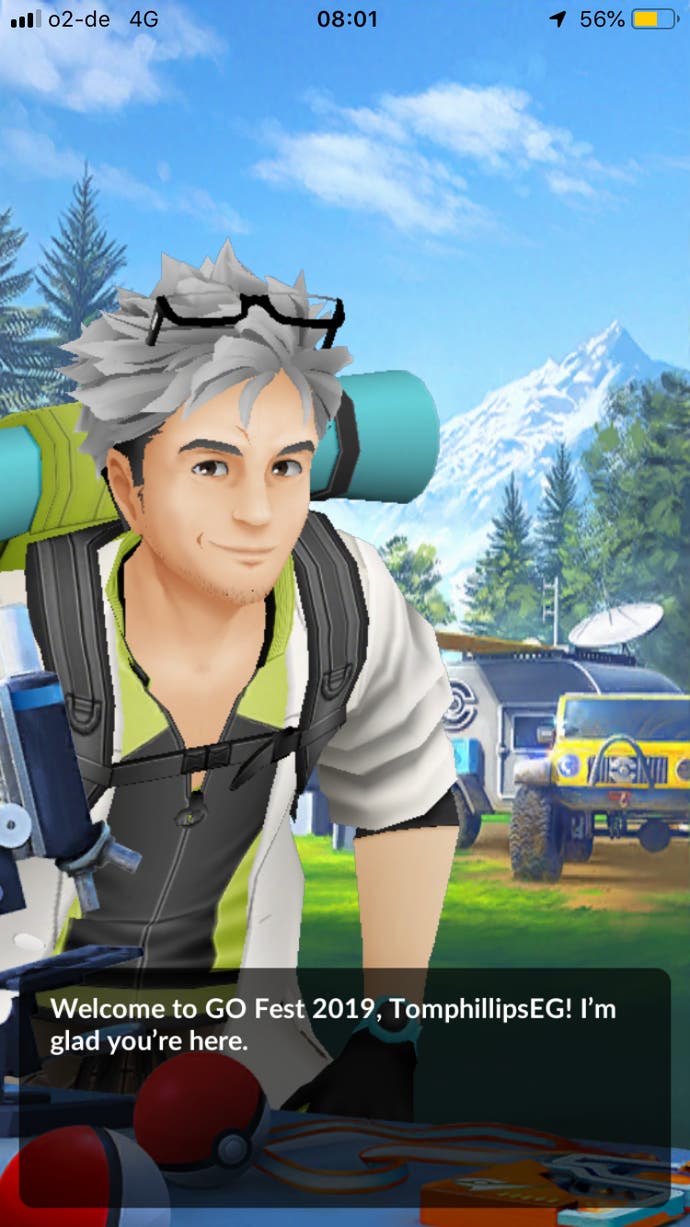
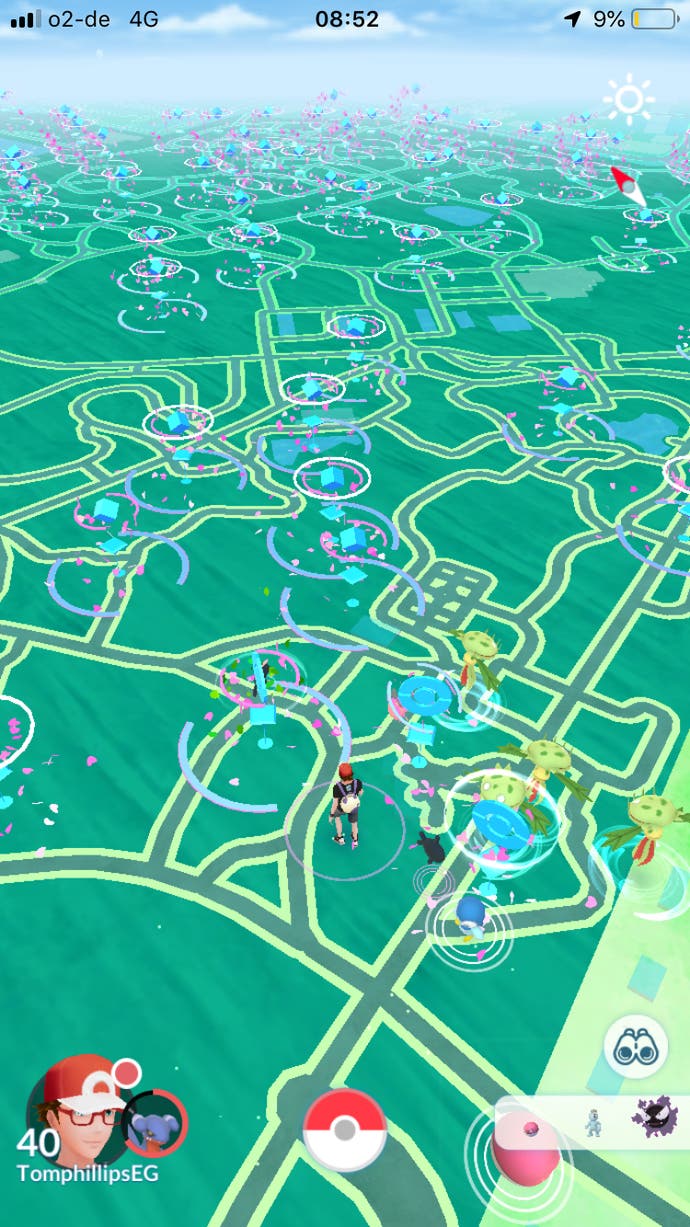
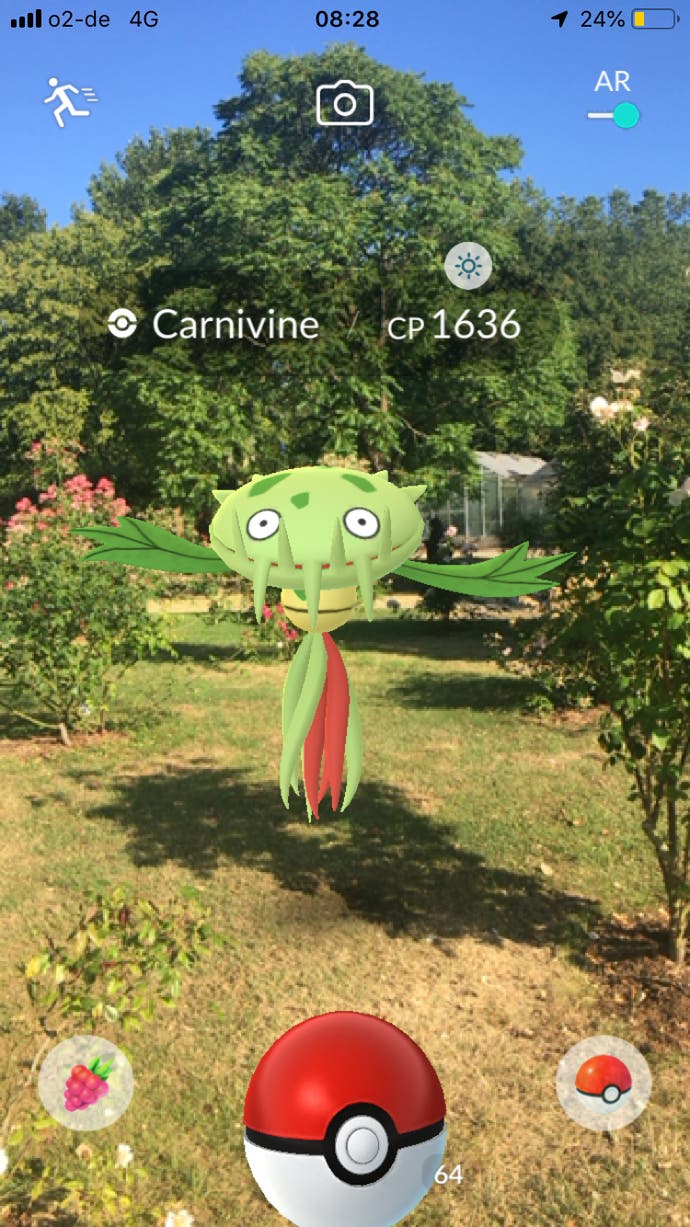
Spawns were different from Chicago, for people who did go to both, and were sometimes incredibly specific - limited to a single PokéStop or two within the park for certain species which made pinning down the things you really wanted into a fun challenge. I remember comparing notes with other players through the day: Flower Pikachu? You needed to go here. Horsea? Right next to the lake. (I gave James a map, and pointed these all out.) With the move to a Go Fest event, Dortmund had also become ticketed - which immediately solved the queuing issues present on the first day last year. And phone network coverage, for the vast majority at least, appeared to have withstood the challenge.
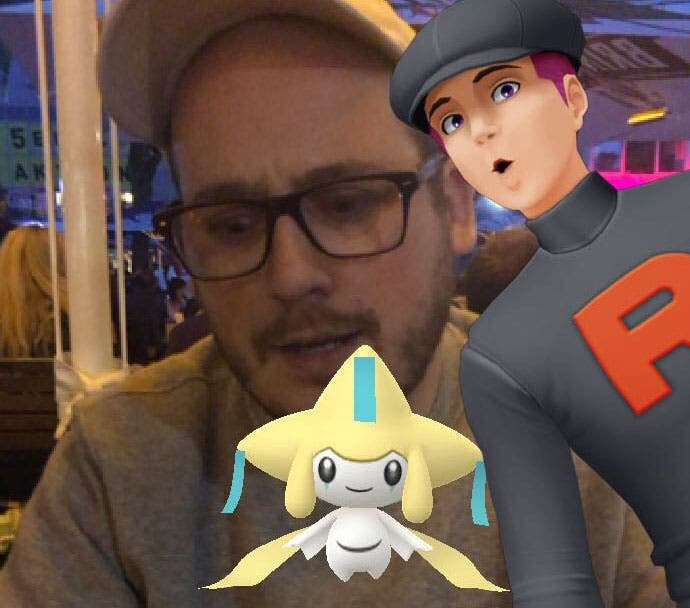
As we neared where James was staying, chatting away, more or less done for the night catching Pokémon on our phones, the city around us in-game was still glowing bright, every PokéStop still lured. We'd spent the past couple of hours looping the city centre, taking in the thousands of others still out doing the same. In front of us, a group of other PoGoers (one of whom had decorated their wheelchair with Pikachu hats, others wearing an assortment of Chansey and Gengar backpacks) were still going strong. But it was time to say our goodbyes.
The last time I'd seen him had been several months ago, at my wedding. Before that, it was Christmas. We live in different places now, and life happens and it's tough to see each other as often as I'd like. I didn't know when we'd see each other next, but I did know that for a few hours we had got to hang out again and talk because we were both here to play this game, explore the city, and tap on creatures together.
This article is based on attendance at Go Fest in Dortmund. Niantic covered travel and accommodation.
